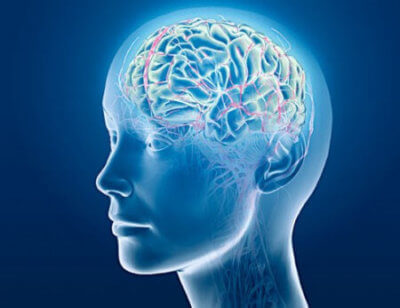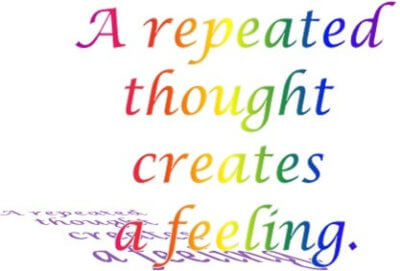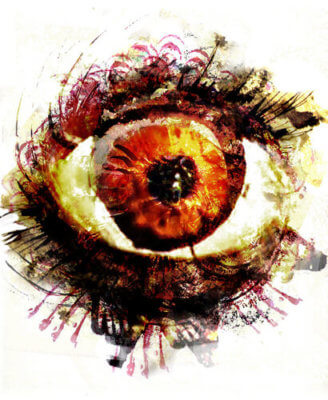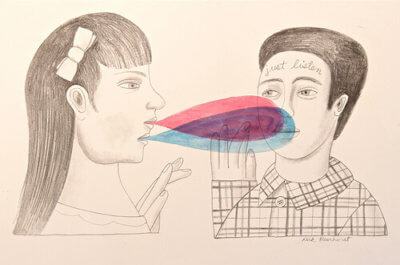The Cognitive Approach – What Therapies Use It, How Does It Help?

By: digitalbob8
Cognitive therapies have their roots as far back as the 1950s and 1960s. They arose as a response to the then popular psychodynamic school of thought, which focuses on looking back into the past to find your unconscious drives and hidden emotions.
The cognitive approach came along and suggested that we look at the power of our mental processes.
How do you perceive your life? How is the way you interpret your experiences determining the life you are creating?
Cognitive therapies look at the way your thoughts and feelings affect your behaviour, and how you can better cope and problem solve.
Therapies that use the cognitive approach
Cognitive behavioural therapy (CBT)
Cognitive behavioural therapy helps you see the way your thoughts and feelings are determining your unhelpful behaviours. By changing this cycle, you can solve your problems and improve your moods.
A popular short-term and structured psychotherapy recommended by the NHS, CBT doesn’t tend to look at your past but uses your current situation to work from. It does involve ‘homework’. Your therapist will give you weekly assignments, such as ‘thought diaries’, where you record upsetting thoughts and notice what actions they lead to.
Cognitive behavioural therapy (CBT) can help with issues such as:
- depression
- anxiety
- post-traumatic shock disorder (PTSD)
- addictions
- eating disorders
- phobias and panic disorder
- anger problems
- relationship problems
- sleep problems.
Acceptance and Commitment Therapy (ACT)

By: Yorinda
Acceptance and commitment therapy (ACT) helps you be present to what is, accept what you can’t control, and take actions to positively change what you can.
The idea behind ACT is to help you become more aware of who you are and what you truly value. You can break free of being controlled by your thoughts, and commit to creating a life that is productive and meaningful to you.
Acceptance and Commitment therapy can help you with:
- depression and anxiety
- post traumatic stress disorder (PTSD)
- chronic pain
- eating disorders
- addiction.
Coaching
Coaching asks you powerful, forward-looking questions that help you to gain clarity on where you are standing and find the best way forward to achieving your goals.
The main difference between coaching and psychotherapy is that coaching doesn’t go into your past at all. Coaching is also action and goal-orientated, whereas counselling can be more about coping and problem solving.
Coaching can help you with:
- career issues
- difficulty reaching goals
- feeling stuck in life
- gaining confidence
- developing a better sense of self.
Cognitive Analytic Therapy (CAT)
Cognitive analytic therapy looks at the way you relate to others and how they affect your relationships and wellbeing. You then see how you could change any pattern of relating that is not serving you.
A short-term psychotherapy, CAT looks to your past experiences to see how these patterns developed, but then focuses on how the patterns are manifesting in your current daily life. It uses the relationship you develop with your therapist as a tool for you to see more on how you relate to others, and then try new ways of being in a safe environment.
Cognitive analytic therapy can help you with:
- eating disorders
- borderline personality disorder
- relationship problems
- low self-esteem
- anxiety and depression
- anger management
- addictions
- feeling stuck in life.
Dialectical Behaviour Therapy (DBT)
Dialectical behaviour therapy helps emotionally sensitive people cope better ,and create a life they feel is meaningful and want to be in.
Proven to be effective even if other therapies weren’t, DBT helps you identify the behaviours that hold you back in life and leave you always feeling upset. It then helps you try new ways of being that can make life smoother, helping you manage emotional upset, set boundaries, and communicate your needs.
Dialectical behaviour therapy is especially helpful for:
- borderline personality disorder
- suicidal impulses
- depression
- easting disorders
- self harm
- substance abuse and addictions
- post-traumatic stress disorder (PTSD).
Eye Movement Desensitisation and Reprocessing (EMDR)

By: Paul Berry
EMDR is a treatment that psychotherapists use to help you access and process your memories from traumatic experiences, helping you move on.
It can feel a strange process, having to discuss old memories as a therapist essentially encourages you to also focus on something else, usually moving your eyes or possibly hand tapping or something else.
But it’s been proven very effective. You will find that you feel less distressed, your negative thinking is lessened, and your physical symptoms of stress reduced.
EMDR assists you with:
- post-traumatic stress disorder (PTSD)
- childhood abuse and sexual abuse
- anxiety and depression
- anger issues.
Schema Therapy
Schema therapy helps you identify and change your self-defeating ways of perceiving yourself and others that leave you feeling like your life is stuck on repeat.
Once again a therapy created for those whom other forms of talk therapy couldn’t help, schema therapy does help you look at your childhood to understand why you behave the way you do. But it also uses tools designed help you feel relief from intense emotions, and then shows you practical ways to make better choices.
Schema therapy can help you with:
- borderline personality disorder
- other personality disorders
- depression
- relationship problems
- identity issues.

By: Dee’lite
Mindfulness-Based Cognitive Therapy (MBCT)
Mindfulness-based cognitive therapy helps you to accept instead of judge your thoughts and feelings, so that you can more easily learn to change the ones that are not helping you move forward.
It combines cognitive therapy (understanding cognitive dysfunction, negative beliefs, and emotional responses) with mindfulness (a technique from ancient Eastern practices that helps you be in the present moment).
You learn that your thoughts are not facts, and you learn to work with yourself instead of against yourself.
MBCT is useful for issues such as:
- depression
- anxiety
- relationship problems
- PTSD.
Solution focused brief therapy (SFBT)
Solution focused brief therapy is a future-focused therapy, helping you recognise your past successes to gain the confidence and resources to create the future you hope for.
As the title suggests, SFBT is a short-term therapy that doesn’t dwell much on your past issues but really puts the emphasis on moving forward. By helping you see the ways you’ve already managed in life, your therapist helps you uncover the skills and strengths you already have. Together you then work out how you can use those tools to now set goals and move toward a life that you want for yourself.
SFBT can assist you with things like:
- fear of change
- lack of confidence
- goal setting
- depression
- parenting problems
- eating disorders
- relationship issues.
Rational Emotive Behaviour Therapy (REBT)
REBT believes that we are not actually emotionally affected by events and people outside of ourselves, but by our thoughts and feelings about such things, which we have the power to control and change.
Rational emotive behaviour therapy is really the oldest of the cognitive therapies, developed by well-respected psychologist Albert Ellis in the 1950s. REBT teaches you a psychological model of “A-B-C-D-E-F’ to deal with stressful experiences. The idea is that the ‘activating event’ (A) that upset you causes beliefs (B) that then cause you to act in certain ways that lead to negative consequences (C. But you can dispute these beliefs (D), find more effective (E) ways of seeing, and try new feelings (F) and behaviours.
REBT can be useful if you have one or more of the the following issues:
- anxiety and depression
- family conflict
- parenting problems
- workplace stress.
Would you like to try a cognitive approach to therapy? Harley Therapy connects you with cognitive therapists in central London and across the UK, or worldwide via online.
Still have a question or want to share your experience of trying the cognitive approach? Use our public comment box below to share with other readers.





